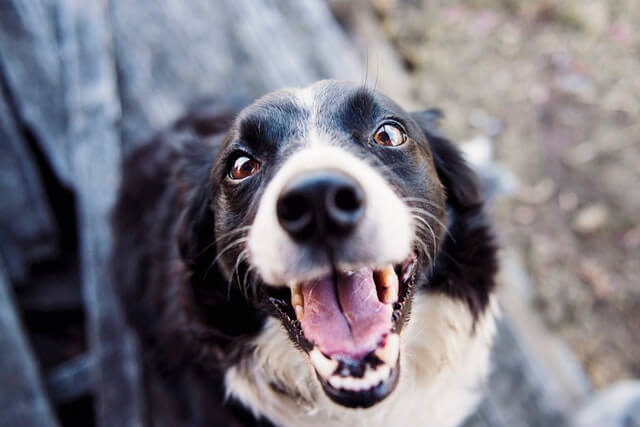1 September 2017
Cleaning your dogs’ teeth at home
There are some things which can help clean the teeth during eating and normal activities. Dry kibble food will naturally help to remove plaque as they have to crunch the food. Other treats such as whole raw carrot once a week as a chew will help this process and provides a healthy snack at the same time (be sure to include this into your daily feeding amounts). Toys are also a great way to provide something to chew.
Cleaning teeth from a young age or practicing regularly is important to help your dog relax.
Use a regular manual toothbrush and brush the teeth just like your own, there are many dog toothpastes however a toothbrush and water will also help remove any plaque build-up. Only use approved canine toothpaste. There are also rubber finger brushes which allow you to hold the dog’s mouth and use your finger to brush at the same time.
Brush the outside of the teeth, this area is where the most plaque will build up as debris and saliva will be trapped between the gum and the inner lip. Use simple strokes back and forth and apply gentle pressure.
Be calm and don’t overdo it, once the dog becomes stressed you should stop and walk away. You can try again another time, putting too much pressure on the dog will make this a bad experience and continue to be difficult.
Add this to your training exercises – Using commands such as sit, down or teaching them to hold a toy while you inspect their teeth will make things much easier.
Puppies and senior dogs
By the age of 3-4 weeks a puppy should have started to grow their first set of teeth, these are similar to children’s milk teeth with will later fall out and at around 3-4 months a new set of adult teeth will replace them.
Providing toys to chew will help the teething process, they will not keep them clean however will sooth the pain. Checking teeth regularly is important as although the first set are not permanent it is important to check for any condition that are developing. You can also check to see that the teeth are falling out and see if there are any complications such as the adult teeth forming before the first set has falling out, this is not serious and can be treated by the vet if needed.
Once the adult teeth are through, practicing cleaning is important so they get use to the sensation. Reward good behaviour and keep these practice sessions short, puppy teeth and gums are sensitive, it is best to practice with water and not too often.
Senior dogs are at much higher risk of gum disease and can often loose teeth or require extraction to remove teeth. It is important to take care of the teeth before it comes to this however sometimes it cannot be avoided. This is done through the vets under general anaesthetic.
